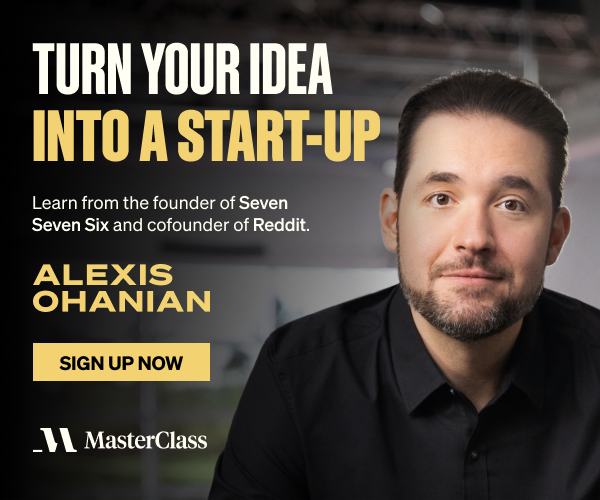If you want a better understanding of how the world works, the Paul Krugman MasterClass could be just what you’ve been looking for.
In his 40+ year plus career, Krugman has held professorships at America’s most prestigious universities, written 27 books, won a Nobel Prize and has come to be acknowledged as possibly the most influential economist in the world.
But along with global acclaim, Krugman has attracted criticism from those whose viewpoint differs from his. So just what can you expect from this MasterClass? How much is the Paul Krugman MasterClass? And is it worth it?
This Paul Krugman MasterClass review will help you answer these questions and more.
I took the class with no formal education in economics. I’ll be sharing what I loved and learned along with a number of my own criticisms.
This review is lengthy so if you just want the headlines, this summary is for you:
.
Quick summary
Learn how to:
- Use economic principles to analyze events and issues
- Appreciate how economic thought has evolved
- Understand why the 2008 crisis happened
- Think critically about trade, globalization, taxation and private health care
- Understand the massive expansion of China and its impact on the US economy
- Adopt sound strategies to check for accuracy of data and information
- Challenge your own assumptions and biases
- Generally become a more aware, active citizen
Pros
- Tuition from one of the world’s most influential economists
- Accessible teaching style and a warm and self-deprecating approach
- Good use of analogy and storytelling to support learning
- Super helpful graphics and animations
- Genuinely educational (in my view)
- Great sources of data and information provided
- References the work of other economists
Cons
- Workbook does not follow the flow of the course or provide a glossary of terms
- Biased towards the US economy and a liberal view of economics
- Pre Covid-19 – needs a bonus chapter discussing the impact of Coronavirus
Course length: 22 lessons, totalling 4 hours and 45 minutes
Best for: Anyone who is open minded and intellectually curious and does not have a professional economics background.
Overall: A thought provoking and educational class delivered in an accessible way with great use of storytelling, analogy, charts and animated graphics to support learning. Paul Krugman's MasterClass will provide you with a framework for making sense of the world.
Now for my more detailed Paul Krugman teaches Economics and Society MasterClass review, here’s what I’ll be covering:
- A look inside the Paul Krugman MasterClass
- Pros and cons of the course
- Is the content unique?
- Is there anything better?
- Verdict: Is the Paul Krugman MasterClass worth it?
First the basics:
About Paul Krugman
Paul Krugman is one of the world’s most influential economists.
Krugman has held professorships at MIT, Princeton, the London School of Economics and (currently) at New York University. He is also a New York Times columnist and author of countless books, textbooks and academic papers on a wide range of economic issues.
He is most well known for his groundbreaking work on liquidity traps, economic geography and trade theory – the latter earned him a Nobel Prize in 2008. In addition he has been awarded the John Bates Clark medal from the American Economic Association.
Krugman is also widely noted for his commitment to making abstract economic concepts accessible and relatable.
His popular commentary is sometimes criticised for being on the left. Though he himself identifies as a liberal – and some of his ideas (particularly regarding free trade) lean distinctly to the right!
And if you haven't seen the trailer for his class, I highly recommend you watch it.
About MasterClass
MasterClass burst onto the scene in 2015 with the simple idea that everyone should be able to access genius.
The online education platform provides inspirational MasterClasses taught by those who have garnered global recognition in their fields of expertise. Classes are available in everything from cooking with Gordon Ramsay to filmmaking with Martin Scorsese, inclusive leadership with Bill Clinton, and thriller writing with Dan Brown.
Famed for its outstanding production values, MasterClass is also rigorous when it comes to content quality and depth of learning material. This combination provides a unique and compelling earning experience.
Considering who the tutors are, Masterclass is also affordable. You can purchase an all access annual pass for $120 allowing you to take any of the 100+ MasterClasses on the platform.
The range of categories includes:
- Business, politics and society
- Writing
- Music and entertainment
- Film and TV
- Culinary arts
- Design, photography and fashion
- Sports and games
- Science and Technology
If you want to learn more about MasterClass check out our MasterClass review and best MasterClass.
Inside the Paul Krugman MasterClass
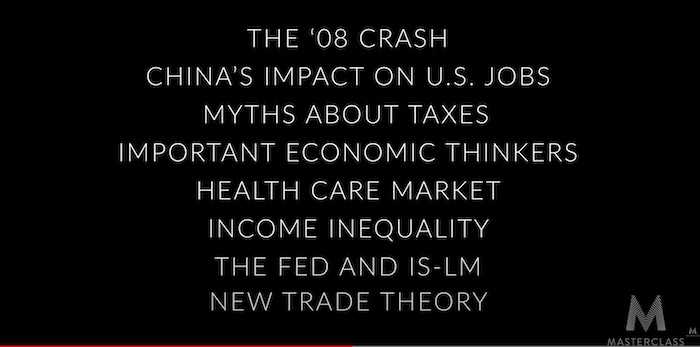
The Paul Krugman MasterClass is just under 5 hours long and comes with a 79 page companion workbook. It consists of 22 video lessons divided into 6 sections:
- Introduction
- The Fundamentals of Economics
- Crisis and Inequality
- The Economics of Healthcare
- Trade and Global Theory
- The Future of Economics
To give you an idea about what’s included in each section I’ve summarized the content below.
Lesson 1: Introduction
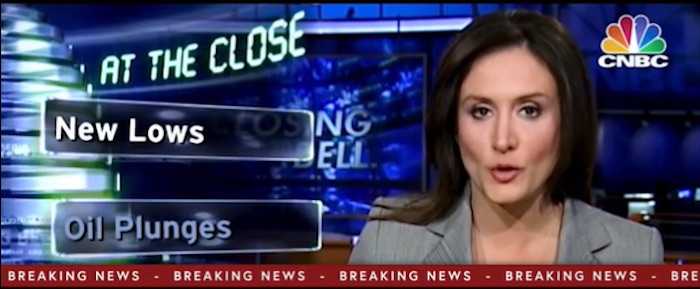
“We are at a time when fake news itself has become fake news. So it’s never been more important to educate yourself. Because the kind of understanding that’s going to get us through all this is going to have to come from you”.
Krugman’s introduction opens with dramatic footage from some of the major economic crises of the last five decades.
He then shares why he’s so passionate that everyone should have a grounding in economics, and what he intends you should gain from this MasterClass. Namely, that you will be able to:
- Think like an economist
- Analyze complex topics
- Question ‘expert’ opinion
- Make better decisions about what’s worth paying attention to, and
- Just understand, and care, more about the world around you
Lessons 2-6: The Fundamentals of Economics
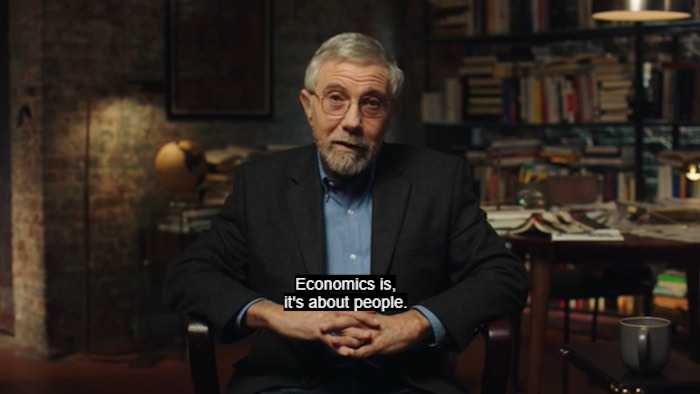
“Economics is always a story about what people do.”
In this five part section Krugman sets out his perspective on economics. And he’s keen to share his people centred view of it.
That said, he emphasises that economics focuses on a narrow range of human activity – peoples’ earning and spending behaviour. This enables economists to identify key motivations and then to predict behavior and present theories about it.
Krugman then shares two fundamental rules that inform his economic thinking and can help us understand how economies work:
- People respond to incentives and opportunities
- Economies have two sides – every sale is also a purchase
He explains how these two rules provide a yardstick for measuring the truth of any ‘story’ you hear about the economy. And he uses a number of examples to illustrate and clarify this.
In the rest of this introductory section, you will learn to understand:
- The importance of analysing past crises to arrive at problem-solving concepts
- The historic development of economic theory – with an overview of two key theorists: Smith and Keynes
- The relationship between political thinking and tax policy
- How to develop a rational view about taxes
- How the Federal Reserve arrives at decisions to stabilize the economy – and the limitations of the framework it uses.
This section is a great way to frame this MasterClass. It provides us with guiding principles that give context and clarity for the remainder of the course.
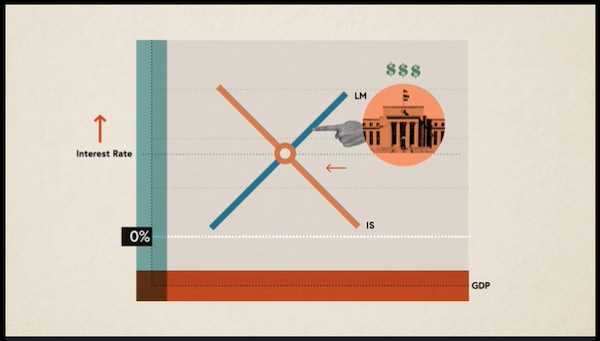
However, Krugman does take for granted that you are familiar with some basic economic jargon. Whilst I’d heard most terms before, I wasn’t always sure of their precise meaning and there was no glossary in the workbook to help with this.
I will tackle the pros and cons of this course in more detail later. Suffice to say, there were also a couple of concepts I didn’t grasp straight away and I had to replay some sections of the course again.
That said, a MasterClass should provide a challenge. And the effort of clarifying things was worth it for the learning gained. I found myself thinking differently about things and having a more informed view of ‘acceptable’ levels of inflation and unemployment.
As a visual learner, I found the animated graphics super helpful for simplifying complex ideas. And as a historian, I loved the emphasis on the importance of history to economic thinking.
The last section on the limitations of the framework used by the Fed to stabilize the economy is a great segue into the next section which deals with theories of economic crises.
Lessons 7-11: Crisis and Inequality
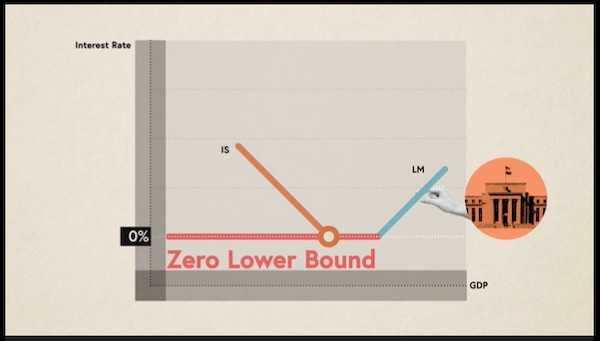
We did not revisit the full horrors of the 1930s after 2008. If you asked, ‘Why not?’ the answer was, ‘Well, we learned something.’
Krugman kicks off this section by explaining why the Fed’s usual monetary policy doesn’t suffice in times of severe recession. He uses the example of Japan’s 1998 crash and the 2008 financial crisis to exemplify this.
In this section you will learn to understand:
- The Zero Lower Bound and the Liquidity Trap
- The difference between monetary and fiscal policy
- Why the 2008 crisis happened
- How the 1929 recession informed the response to the 2008 crisis
- Why deficit spending in times of crisis can be a good thing
- The social, cultural, political and economic costs of the growing income gap
Krugman gave the most accessible and clear explanation for the 2008 crisis that I’ve ever heard.
And I loved how this section built on the previous one. It added flesh to the bones in the form of fuller explanations, helpful examples and supportive graphics. These often included clear definitions of economic terms which saved me looking them up!
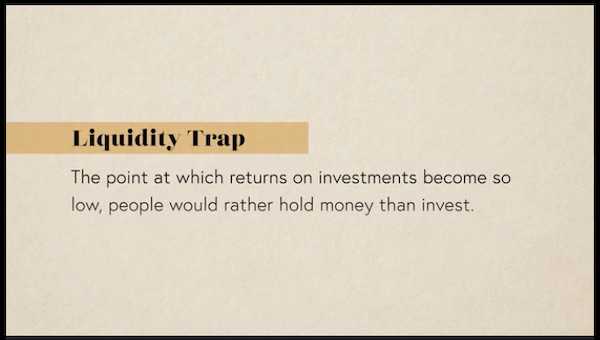
It was also great to see so many examples from the past providing lessons and problem solving concepts for the future. But here is where we get to a shortcoming of this MasterClass. It was filmed before Covid which is widely said to be forcing a rethink on macroeconomics.
A bonus chapter on the economic fall out (and response to) Covid 19 is needed please, Mr Krugman and MasterClass! Not to mention the war in Ukraine.
Lessons 12-13: The Economics of Healthcare
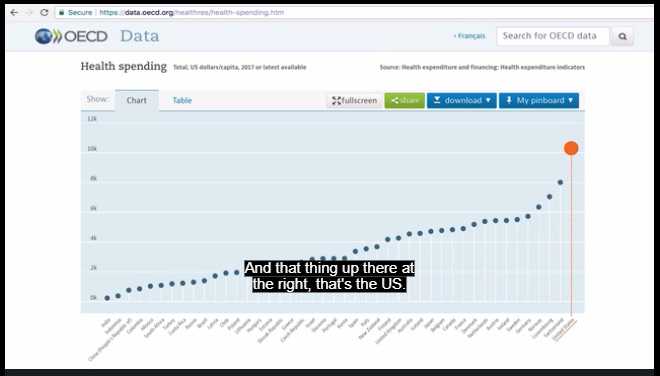
“Every advanced country, except America, has some form of universal guaranteed health care… yet they all spend less on health care than we do.”
Eight of the ten fastest growing occupations in the US are related to healthcare. It’s one of the biggest and most rapidly expanding areas of the US Economy.
As Krugman points out, health and health economics are pivotal to both America’s people and its economic prosperity.
Yet, when you have finished this section you will learn that the private healthcare insurance market:
- Is structurally prone to failure
- Inevitably makes healthcare more expensive
- Means the US spends vastly more per person on healthcare than other economically developed countries, yet has a lower life expectancy than most of them
In looking at the solutions to the problem of healthcare, Krugman examines different government regulated health care systems in several countries, and shares the strengths and weaknesses of each.
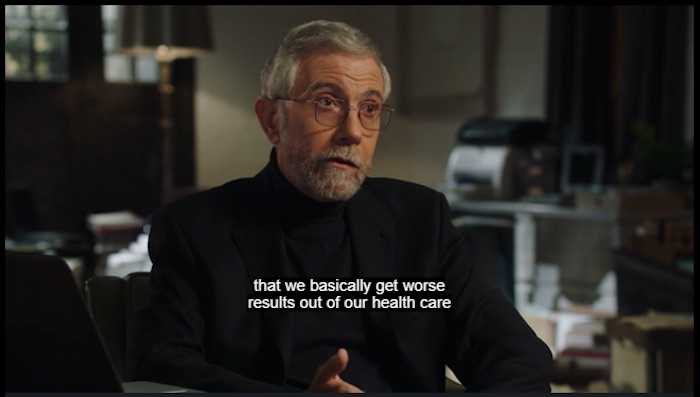
The section ends with a discussion of the barriers that stand in the way of health care reform, despite the system being “a mess”.
Lessons 14-17: Trade and Global Theory
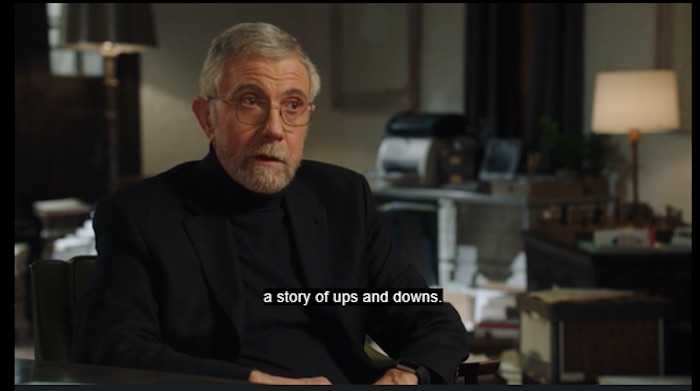
“Trying to recapture a vanished past without understanding why that past vanished, is a recipe for just more bad stuff happening.”
Krugman sets the context for this section by reviewing the history of global trade. He’s keen for you to understand that it’s not a story of ever increasing globalization. It’s a story of ups and downs, phases, and different driving forces.
He goes on to discuss the impact global trade has on the world by helping you understand economic ideas, including:
- Comparative Advantage
- David Ricardo’s model of free trade
- His own New Trade Theory and economies of scale
- Income distribution and the complex pattern of winners and losers partly caused by global trade
Krugman points out that technological change creates winners and losers in similar ways to global trade. But global trade preoccupies people more because it crosses national boundaries and gets caught up in nationalism.
This links nicely to the next lesson in which Krugman explains the massive economic expansion of China and its impact on global economies and trade theory.
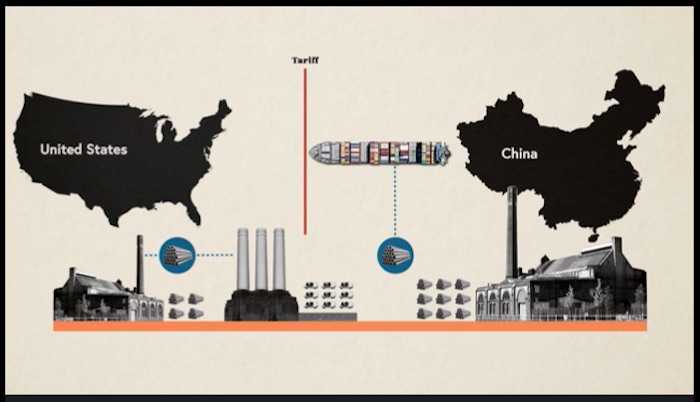
He spells out why US tariffs on China are self-defeating, why we shouldn’t worry about trade deficits with China, and who the real losers are in China-US trade relations.
And he’s not referring to the blue collar workers widely touted as being the ones left behind by trade with China!
This section ends with an exposition of another area of Krugman’s expertise, economic geography. For Krugman, this is a far greater problem for aggrieved blue collar workers in the US than globalization. And he explains why.
I found this to be the most thought provoking section of this MasterClass. It contained a great many challenging ideas, and once again I had to rewatch a couple of lessons to ensure I was ‘getting it’.
However, what I really enjoyed about these lessons is that Krugman debunked a lot of received wisdom and provided frameworks to rethink economic issues.
He also explores the reasons why factually incorrect ideas about the economy persist.
Lessons 18-22: The Future of Economics
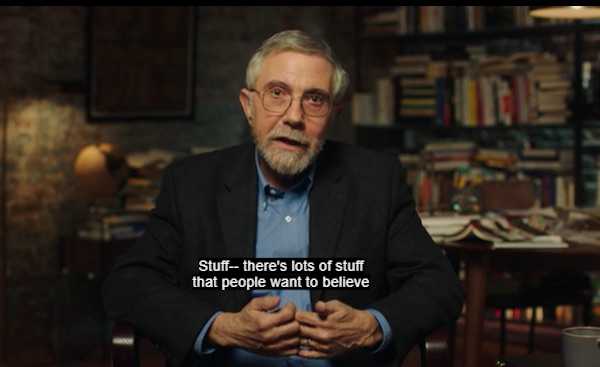
“If everything you see when you look at economics confirms your initial view of the world, then you’re doing it wrong.”
Throughout his MasterClass, Krugman is keen to show how many stories and ideas about the economy are incomplete, or even incorrect. They persist because of prior beliefs or because they support the agendas of people with money and power.
Given this, it’s no surprise that this last section focuses on helping you to better understand and interpret information about the economy. So in this section you will learn to:
- Be selective in your choice of sources of information
- Avoid bald assertions and identify sound arguments
- Use Krugman’s own strategies to check for accuracy
- Reject writers who won’t admit their mistakes
- Understand Krugman’s approach to writing persuasive and engaging economic copy
Krugman then moves on to discuss the impact on the economy of technological change. .
In particular he examines the widely held belief about the impact on employment of automation. And he explains why it’s a ‘bad story’ if you consider the economy as a whole. He exemplifies this with a parable about hot dog automation.
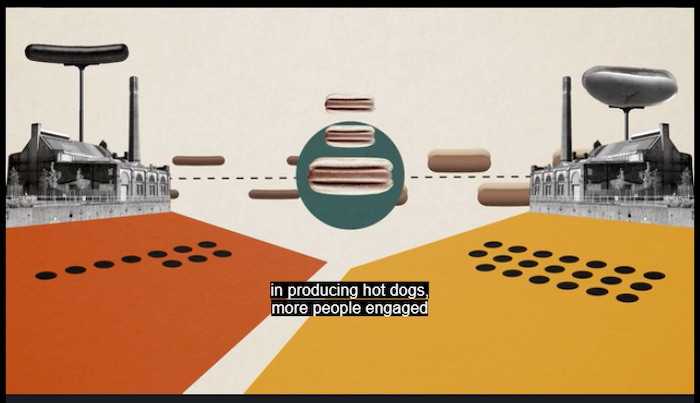
As his MasterClass draws to a close, Krugman shares some final tips to help you to:
- Think critically about economics
- Find valid experiences and data to analyse
- And challenge your own assumptions and biases.
Above all he urges you to become a more aware, informed and active citizen and not to, “Let the crazies grind you down.
What I Liked About Paul Krugman’s MasterClass
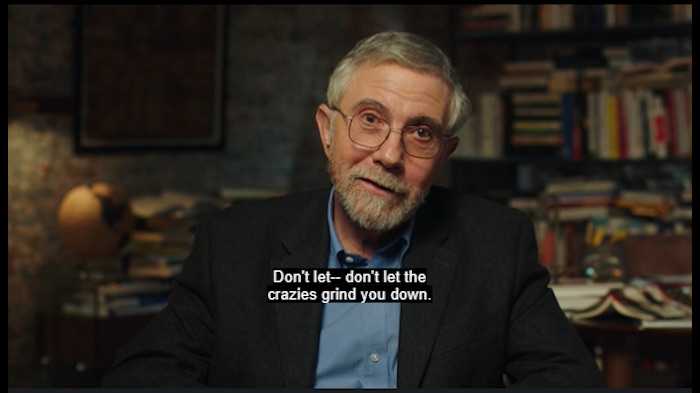
Great delivery and teaching
As a Nobel prize winning economist with over four decades of both studying and teaching economics, Krugman knows his subject and how to get his ideas across.
He has a commitment to making economics accessible and using everyday language whenever possible to convey complex ideas. Nevertheless, my non science/math background did mean I had to replay some of the earlier lessons to gain a secure understanding!
That said, the effort paid off and his warm, self-deprecating manner was encouraging without being condescending.
Learning was supported by his use of analogy, examples and parables. These brought economics to life for me and made it relatable.
Helpful graphics and Animations
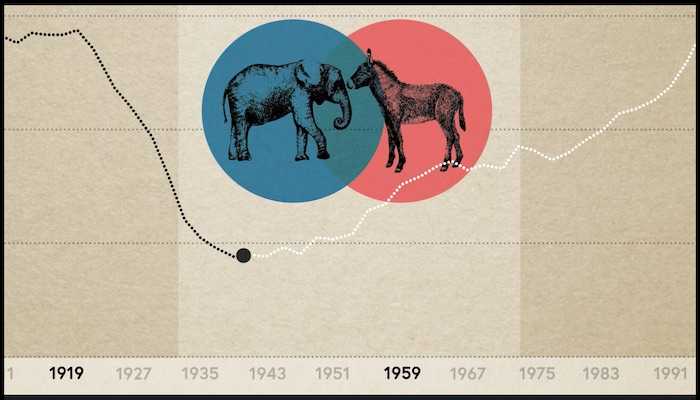
In addition to his anecdotes and stories, charts and animated graphics are frequently used to promote understanding.
This was super helpful to me as a visual learner.
Genuinely Educational – I learned a lot
To date, I have taken 15 MasterClasses. I’ve learned from every one of them, but none made my brain work as hard as this one.
To stress again, I’m an arts graduate. A historian and educator. I follow the news avidly and had an everyday/historical understanding of economics prior to this course.
I learned to be more methodical and critical as a result of this MasterClass. And though I regarded myself as a questioning person before, this class added another layer by showing so clearly how, and why, widely held ideas about the economy can be proved wrong by the data.
Provides great sources of Data and Information
Both the class itself and the workbook provided a huge range of sources of data and information that can be easily accessed.
These included hard data such as that provided by the OECD, the World Bank, the IMF and FRED (Federal Reserve Economic Data).
As well as this, there extensive reference to reports, books, articles, landmark texts, online exhibits and even classic film.
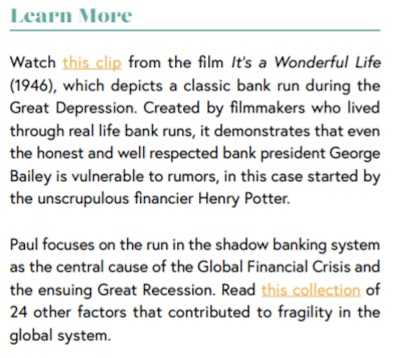
References other Economists
Obviously, any MasterClass will focus on the ideas and achievements of the master.
However, both Krugman and the workbook reference the work of other economists. Among them classical economists such as Smith, Keynes, Friedman and Ricardo as well as contemporary writers.
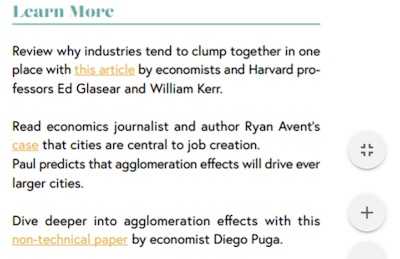
What I Thought Could Be Improved
Workbook lacks structure and a glossary
I like to print off the workbook and annotate it as I follow the video lessons.
This was hard as the workbook does not follow the flow of the course at all – and some elements are missing.
This begs the question – which is in the most logical order, the class or the workbook?
It also lacked a glossary of terms which would have been helpful to me.
That said, it is a handy post course reference.
Bias towards the US economy and a liberal perspective
Despite discussions of other world economies, this MasterClass is quite US Centric. This is worth bearing in mind if you are taking this course outside the US.
Krugman’s economics, particularly since the 2008 crisis have attracted criticism as well as acclaim. Some accuse him of being left of centre, others of not being left enough. I consider how this has come about in a later section (‘What others have said’).
My own opinion is that his ideas cross both sides of the centre. Though I can see why right of centre conservatives and committed libertarians might find some of his ideas challenging!
Witten pre Covid-19
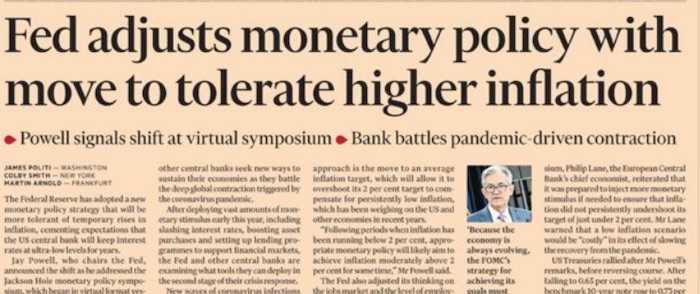
With several countries experimenting with negative interest rates, record unemployment and the increasing confusion about which levers governments should pull to stimulate the economy, this course feels incomplete without some up-to-date input. Even more so now given the war in Ukraine.
So come on MasterClass. A bonus chapter please!
Who is this MasterClass for?
On a scale of 1-10 (with 1 being a complete novice and 10 being an expert) I would rate this course as suitable for people falling between 2-6.
Krugman is great at explaining complex, abstract concepts. However, there is still an assumption that you will be familiar with some basic terms and ideas.
On the other hand, if you are an economics student, you are unlikely to learn anything new. Krugman is, after all, the second most frequently cited author on college economics syllabi. So unless you’re a particular fan of Krugman and would enjoy watching him in action, or have been assigned to critique him, this is probably not for you.
I would say this course most suits anyone who is open minded and intellectually curious, does not have an economics background and would appreciate learning to think about the world in a new, and more systematic, way.
How much does the Paul Krugman MasterClass cost?
MasterClass offers an annual all access pass for $120. This provides access to all 200+ MasterClasses for a full year.
The Paul Krugman MasterClass is the only one on economics. But there are plenty of others that would complement it – such as Doris Kearns Goodwin on presidential history and leadership (see my review here) or Bob Iger on business strategy and leadership.
Or you could opt for something completely different and cook with Thomas Keller then learn magic tricks with Penn and Teller.
For more information on the MasterClass pricing structure check out our MasterClass cost article.
You can also buy MasterClass as a gift.
Alternatives to the Paul Krugman MasterClass
Krugman’s MasterClass is (at the time of writing) the only economics one available on MasterClass.
However, there are several other classes within MasterClass's business category that you can take including Bob Iger, Howard Schultz, Chris Voss, Bill Clinton, Hillary Clinton and Daniel Pink to name but a few.
There are several courses in economics available on Udemy. However, these tend to focus on a narrow range of topics and are delivered by academics without Krugman’s standing.
If you are looking for something a little more academic there are a number of courses from top universities that can be sampled for free on platforms like Coursera or edX. You do have to pay for certification but this can be as little as $49.
The Paul Krugman MasterClass: What Others Have Said
I took a look at the comments from the MasterClass Community and Reddit to gauge the reactions of others who had taken this course.
A discussion opener on the MasterClass community triggered a lot of debate:
“After listening to 4 of his vids, I can’t take anymore. He’s interesting, but so polarized to the political left as to make it not credible or believable.” - Comment from the Community
There was support for this view, but many community members felt there was still a great deal of merit in taking the class:
“I agree with you.. Krugman definitely plants a flag for his position. That said, I had a professor (whom I admire to this day) who was an avowed socialist. I didn’t agree with him, but I learned a lot by crossing intellectual swords with him, I grew my own understanding. Ultimately the difference was our differing moral points of departure, and that drove our different conclusions. Try listening to Krugman, and take notes on what you disagree with, and why. You’ll still develop your own understanding.” - Comment from the community
And perhaps the most interesting observation on the whole debate (and one that reflects my own view) came from this community member.
“Of course we are seeing economics from Krugman’s perspective. He is clear at the outset about this. That said, the video lectures, along with the workbooks, give a clear underpinning of basic economics—Smith, Ricardo, Keynes et al. As with any lecturer—or all of us—Krugman has a political perspective; there’s no such thing as a neutral observer. As has been noted by others here, that doesn’t mean we let our critical guard down. Krugman strives to be balanced, fair, open and honest about his position. It works for me.” - Comment from the community
Comments on Reddit followed much the same pattern, there were both fans and detractors. But this contributor makes a valid point:
“To all who are like "We don't like Krugman here"... I understand that. I'm not a fan either. But he's the most influential economist in the world other than maybe Piketty, and it's important to understand him. From that lens... Is it worthwhile.” - Comment from Reddit
To try to understand why Krugman seems to divide people I dug a little further and found this useful explanation on Reddit:.
“His academic work focusing on international trade, economic geography, and liquidity traps, is very influential, very respected and not at all controversial. He also wrote some classic popular articles in the 1990s that are generally considered some of the best articles on economics, again communicating fairly uncontroversial ideas (at least in economic circles). Since moving to the New York Times some of his columns have been quite partisan, and since the financial crisis he's supported a particular view of macroeconomics that some think is unjustified. Due to this, he has come in for a fair amount of criticism from more right-of-centre mainstream economists that disagree with him, as well as some left-of-centre heterodox economists who think he ought to follow their brand of heterodoxy. He mostly attacks Republicans, but he was very critical of Sanders when the Democratic primary was ongoing. Regardless, he's still easily the most economically informed writer with a huge media prominence, and his posts tagged (Wonkish) usually contain solid economic analysis.” - Comment from Reddit
Other comments on Reddit and YouTube made frequent reference to a fateful statement Krugman made in 1998:
“By 2005 or so, it will become clear that the Internet's impact on the economy has been no greater than the fax machine's.”
You can read his defence of this in Business Insider. And anyone who completes this MasterClass will hear him being humble and honest about all the mistakes he has made!
I’m going to give the final world to a commentator who sums up my own feelings after completing this class:
“Imho it's a bargain. Not everyone can attend his actual classroom lectures so this really democratizes access to a great mind, which I think is totes amazing!!” - Comment from Reddit
Is the Content Unique?
Paul Krugman has written nearly thirty books, including academic and text books as well as those for the more general audience. Many can be purchased on Amazon:
- Arguing with Zombies (2020)
- The Return of Depression Economics (2015)
- The Accidental Theorist (2015)
There are also a number of YouTube videos available for free in which Krugman is interviewed or discusses specific economic issues.
But in terms of distilling four decades of acclaimed study of economics into one educational, skillfully produced MasterClass, the content of this class is certainly unique.
What You Will Need
An open and intellectually curious mind.
And if you’re like me you might want to make sure you really know the meanings of these terms before you start:
- Balance of payments
- Monetary economy
- Supply side taxation
Is the Paul Krugman MasterClass Worth It?
Given the learning I gained, in my view yes.
As someone with no background or training in economics I found the concepts and ideas in this class challenging. But Krugman’s storytelling approach and his use of analogy and graphics made it accessible and relatable.
His warm, self-deprecating approach together with the unrivalled production values that characterize MasterClass provided me with a compelling learning experience that really made me think hard, think differently, and shift my perspective.
However, as always, I recommend you go see what’s on offer on the platform before committing. If you can find at least two (and that should be easy) other classes worth considering, the all access annual pass is unrivalled value for money.
I would suggest Doris Kearns Goodwin on presidential history and leadership as a great companion for this course (reviewed here) along with Bob Iger on business strategy and leadership
You will learn how to:
- Use economic principles to analyze events and issues and question ‘expert’ opinion
- Make better decisions about what’s worth paying attention to
- Appreciate how economic thought has evolved in response to events
- Why studying past crises provides problem-solving concepts
- Why the 2008 crisis happened, and how the past informed our response to it
- To think critically about trade, globalization, taxation, private health care
- Understand the massive expansion of China and its impact on the US economy
- Adopt sound strategies to check for accuracy of data and information
- Challenge your own assumptions and biases and become a more aware, active citizen
Frequently Asked Questions
A MasterClass all access pass is $120. This will give you access to all 200+ classes for 12 months.
Not unless you are lucky enough to have someone buy it for you and MasterClass does offer a gift option.
Yes, MasterClass offers a 30 day full, no quibbles, refund policy. If you purchase the MasterClass through another provider their own returns policy may apply
22 video lessons divided into six sections. It is four hours and 45 minutes long. There is also a 79 page companion workbook.

Liz Hurley has 30+ years of high school teaching experience and is one of our senior writers here at Learnopoly.




